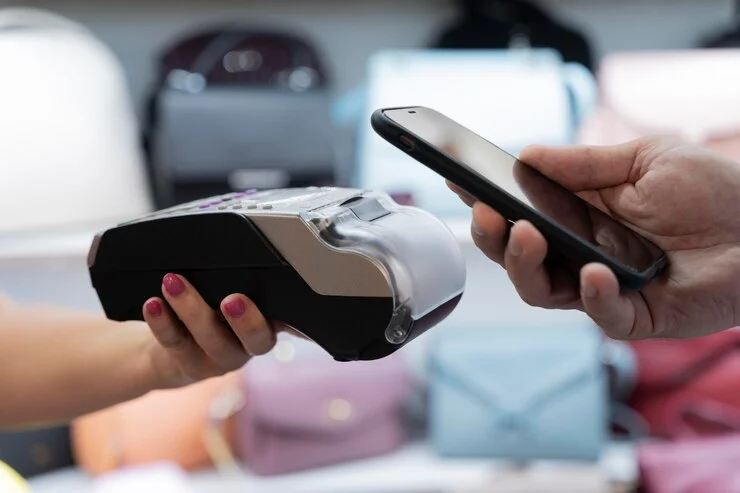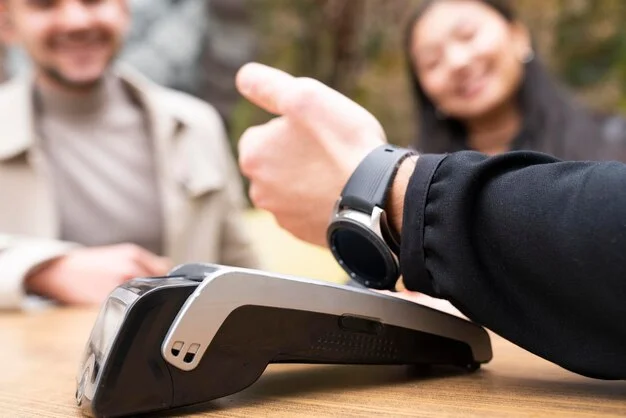Self-checkout systems have revolutionized the way we shop. They allow customers to scan and pay for items independently, saving time and reducing queues. However, while they bring convenience, they also introduce complications, especially when mistakes or misunderstandings occur. If you find yourself accused of theft at a self-checkout, it’s essential to know how to handle the situation properly.
The accusations often arise from errors that may seem small but can have serious consequences. For example, forgetting to scan an item or accidentally scanning the wrong price may be enough to trigger suspicion. Many people face these allegations even when their intentions are honest. Knowing what actions to take can help you prove your innocence and protect your reputation.
Understanding the risks and challenges associated with self-checkouts is key to avoiding such situations. This article explores the causes of these charges, their legal implications, and how to navigate them successfully. Whether you’re dealing with a current accusation or simply want to be prepared, this guide will provide valuable insights to help you.
Understanding the Basics of Self-Checkout Systems
Self-checkout kiosks are designed to streamline shopping by allowing customers to scan items and pay without assistance from store staff. However, these systems depend heavily on customer accuracy and the proper functioning of the technology.
Sometimes, customers might struggle with scanning barcodes or interpreting instructions, especially if they’re unfamiliar with the process. Even small mistakes can lead to confusion, and unfortunately, not all stores are forgiving of such errors.
The technology itself is not flawless. Scanners may misread barcodes, and payment systems can malfunction. These issues can sometimes create problems for shoppers, even when they have no intention of wrongdoing.
What Constitutes Theft at a Self-Checkout?
Theft at a self-checkout occurs when an item is not paid for correctly. This can include failing to scan an item, scanning it at a lower price, or intentionally bypassing the system to avoid payment.
It’s important to note that theft doesn’t always involve deliberate actions. Honest mistakes, such as forgetting to scan a small item in your trolley or accidentally scanning the wrong barcode, may also be seen as theft.
Unfortunately, store policies often treat all discrepancies as potential theft, regardless of intent. This makes it essential to remain alert and double-check your transactions to avoid misunderstandings.
Common Causes of Self-Checkout Theft Allegations
Unintentional Errors During Scanning
Simple mistakes are one of the most common reasons for theft allegations. Distractions, rushing, or unfamiliarity with the system can lead to items being skipped during the scanning process.
Faulty Equipment or Technical Glitches
Technical issues, such as malfunctioning scanners or incorrect barcode readings, can lead to unscanned items. Although these errors are not your fault, they may still raise suspicion.
Misunderstandings by Store Personnel
Store employees or security staff may misinterpret your actions, especially if they see you placing items in a bag before completing payment. This can lead to unnecessary accusations.
Legal Implications of Self-Checkout Theft Charges
Potential Penalties and Consequences
Being accused of theft can result in fines, community service, or even imprisonment, depending on the severity of the case and the value of the items involved.
How These Charges Can Affect Your Record
A conviction may leave you with a criminal record, which could impact your ability to secure a job, rent a home, or travel to certain countries. The long-term consequences make it vital to address the charge promptly.
Steps to Take When Accused of Self-Checkout Theft
Stay Calm and Polite
When confronted, it’s important to remain calm. Avoid arguing or becoming defensive.
Do Not Admit Guilt Immediately
Even if the accusation feels overwhelming, do not admit fault unless you are certain of your mistake. Calmly explain your perspective and request to clarify the situation.
Collect Evidence and Witness Statements
If possible, gather evidence such as receipts, surveillance footage, or witness testimonies. These can help you prove your innocence if the matter escalates.
Understanding Your Legal Rights

Right to Legal Representation
You have the right to consult a lawyer. A legal expert can guide you on how to handle the accusation and ensure your rights are protected.
Importance of Staying Silent Without a Lawyer
It’s wise to avoid making any statements without legal representation.
How to Build a Strong Defence Against Charges?
Proving Intent (or Lack Thereof)
Intent is a key factor in theft cases. Demonstrating that your actions were accidental can significantly strengthen your defense.
Using Surveillance Footage to Your Advantage
Most stores have cameras monitoring self-checkout areas. Reviewing the footage can help show whether the incident was a mistake.
Gathering Expert Testimonies About System Errors
An expert can testify about potential malfunctions in the self-checkout system, highlighting how technical issues could have caused the problem.
Working with a Criminal Defence Lawyer
Importance of Legal Expertise in Theft Cases
A lawyer with experience in theft cases can help you understand the charges and create a solid defense strategy.
Questions to Ask When Hiring a Lawyer
Inquire about the lawyer’s experience, success rates, and fees to ensure they are well-suited to your case.
Preparing for Court With Your Lawyer
Work closely with your lawyer to gather evidence, rehearse your testimony, and prepare for different outcomes.
Preventing Future Accusations at Self-Checkouts
Tips for Avoiding Scanning Errors
Take your time while scanning items, ensuring each one is registered correctly before moving to the next.
Always Checking Receipts Before Leaving
Review your receipt to confirm all items have been scanned and paid for. This simple step can prevent misunderstandings.
Conclusion
Facing a self-checkout theft charge can be overwhelming, but you’re not alone. Understanding your rights and taking the proper steps can help you resolve the situation with minimal stress.
The key is to stay calm, seek legal advice, and gather evidence to support your case. With the right approach, you can prove your innocence and avoid lasting consequences.
Finally, being cautious in future transactions is essential. Always double-check your items and receipts to ensure everything is in order. Prevention is the best defense against these misunderstandings.
FAQs:
1. Can honest mistakes lead to charges?
Yes, even honest mistakes can result in theft allegations at self-checkouts. For instance, forgetting to scan an item, selecting the wrong product code, or double-scanning an item could all be perceived as suspicious. These charges are often based on the store’s policies rather than your intent, so it’s crucial to stay attentive while using self-checkouts.
2. How often do self-checkout systems fail?
Technical glitches in self-checkout systems, though not extremely common, do happen. Scanners may misread barcodes, touchscreens might freeze, or the system may fail to register an item in the bagging area. Such errors can create confusion and even lead to wrongful accusations of theft. Staying aware and checking your transaction carefully can help minimize risks.
3. What happens if I don’t respond to the charge?
Ignoring a theft charge is a serious mistake. Failure to respond can escalate the issue, potentially leading to fines, a court summons, or even an arrest warrant. Addressing the charge promptly, consulting a lawyer, and cooperating with authorities will give you the best chance of resolving the matter effectively.
4. Should I represent myself in court?
While it’s legally possible to represent yourself, it’s not recommended. Theft charges, even minor ones, can have long-term consequences, and the legal process can be complex. A skilled lawyer will understand the nuances of your case, help gather evidence, and build a strong defense to ensure the best outcome.
5. Can charges be dropped if it was a mistake?
In some instances, charges may be dropped if you can demonstrate that the incident was an unintentional error. Evidence such as surveillance footage, receipts, or witness testimonies can help prove your innocence. A lawyer can also negotiate with the prosecution to dismiss or reduce the charges based on the circumstances.
